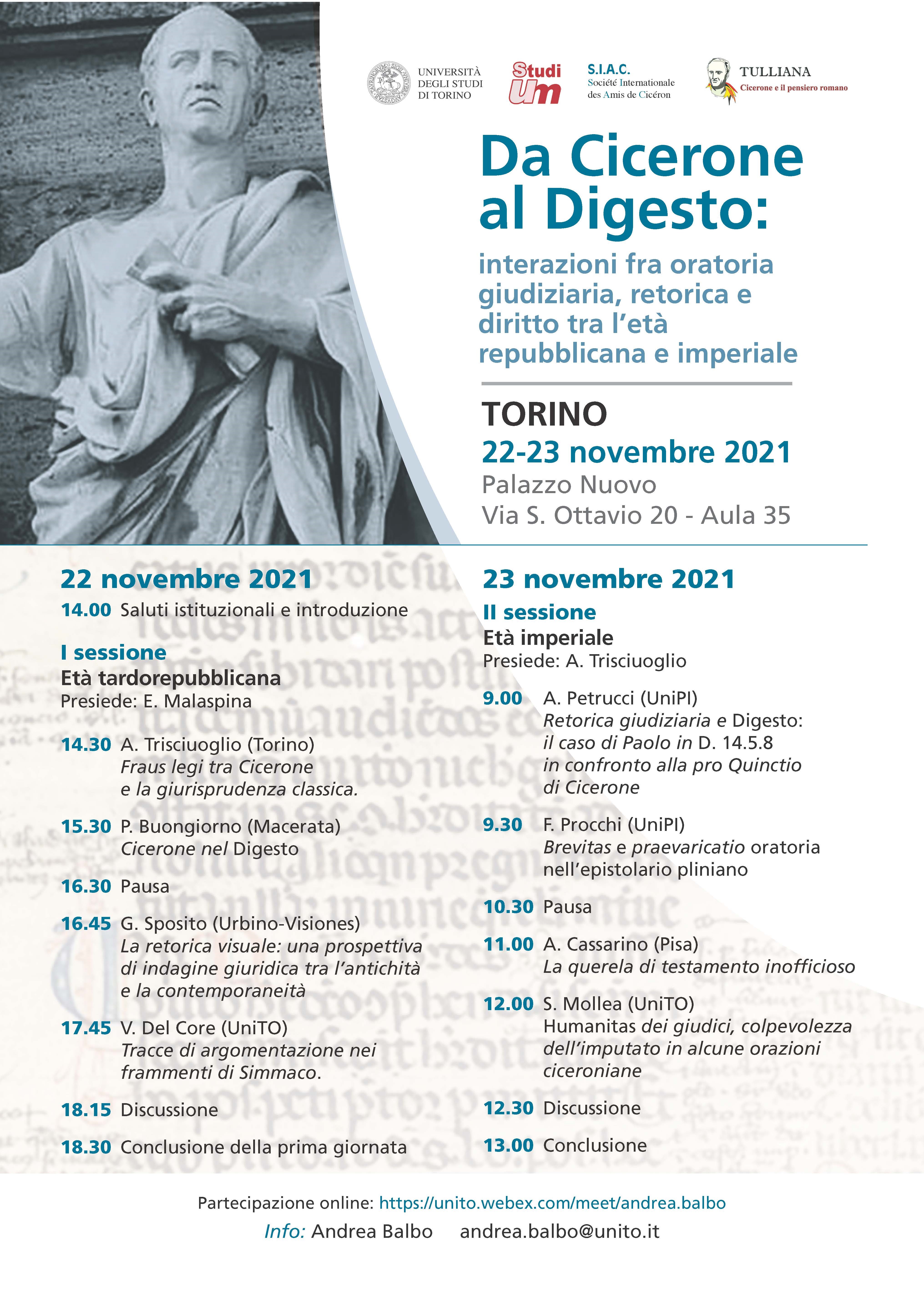Humanitas of the judges, guilt of the accused in some Ciceronian orations?
DOI:
https://doi.org/10.13135/2532-5353/7267Abstract
At Off. 2, 51, Cicero invokes humanitas to argue that even guilty defendants must have their day in court. Looking back over Cicero’s forensic career from the perspective of On duties, we see that he had made explicit appeal to the judges’ humanitas in 5 speeches (Pro Cluentio, Pro Balbo, Pro Archia, Pro Sulla and Pro Caelio). In light of this, modern scholarship broadly agrees that Cicero may have had little in the way of substantive material to argue in defence of his clients and likely these clients were guilty. This paper does not aim to support this point, that in 44 BCE Cicero was revealing that his past appeals to the judges’ humanitas had been due to the defendants’ guilt. The focus of this paper is to explore how and why in these five speeches, humanitas is used as a device to bring together or divide the judges and other parties to the matter. The argument highlights the extent to which humanitas is an effective rhetorical tool: it distracts judges from the trial itself by flattering them with ennobling comparisons (with Pompey, a great? poet, Cicero himself) and/or by separating them off from outcasts (Oppianicus, Sassia) or from the accusers (Manlius Torquatus, Herennius).
Downloads
Downloads
Published
How to Cite
Issue
Section
License
Authors who publish with this journal agree to the following terms:
- Authors retain copyright and grant the journal right of first publication with the work simultaneously licensed under a Creative Commons Attribution License that allows others to share the work with an acknowledgement of the work's authorship and initial publication in this journal.
- Authors are able to enter into separate, additional contractual arrangements for the non-exclusive distribution of the journal's published version of the work (e.g., post it to an institutional repository or publish it in a book), with an acknowledgement of its initial publication in this journal.


 Ciceroniana On Line is recognised by ANVUR (the National Agency for the Evaluation of the University System and Research) as a CLASS A journal for the Sciences of Antiquity, Philology, Literature and History of Art (
Ciceroniana On Line is recognised by ANVUR (the National Agency for the Evaluation of the University System and Research) as a CLASS A journal for the Sciences of Antiquity, Philology, Literature and History of Art ( The journal is included in DOAJ. The DOAJ listing of the journals is available at
The journal is included in DOAJ. The DOAJ listing of the journals is available at  The journal is indexed in
The journal is indexed in  The journal has been included in ERIH PLUS. The ERIH PLUS listing of the journals is available at
The journal has been included in ERIH PLUS. The ERIH PLUS listing of the journals is available at 

